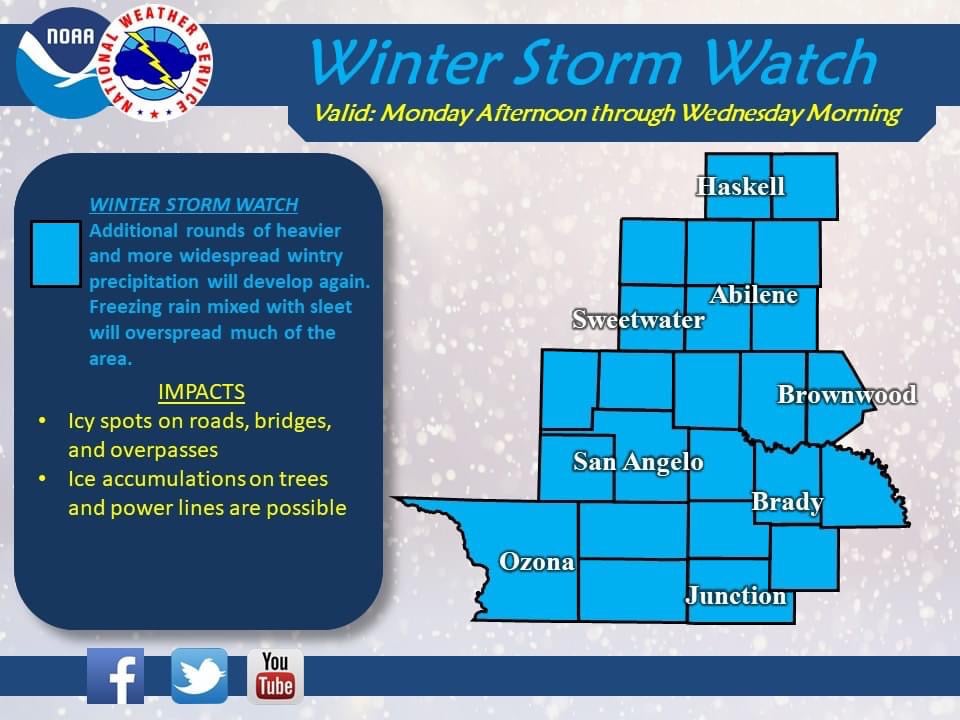Understanding Winter Weather Advisory Impacts On School Schedules

Table of Contents
Factors Influencing School Closure Decisions During a Winter Weather Advisory
School districts consider several key factors when deciding whether to close or delay school due to a winter weather advisory. These decisions prioritize student and staff safety above all else.
-
Road Conditions: Icy roads, heavy snowfall, and reduced visibility are major concerns impacting bus routes and student safety. School districts work closely with local transportation departments to assess road conditions before making a decision. These assessments often begin in the pre-dawn hours, considering the potential for black ice and rapidly changing conditions. Bus routes in hilly or rural areas are often given extra scrutiny. The inability of buses to navigate safely is a primary reason for school closings.
-
Temperature Extremes: Extremely low temperatures present significant risks to students waiting for buses or walking to school. Hypothermia and frostbite are real dangers, especially for young children. Schools consider not only the temperature at the time of the decision but also the predicted wind chill factor, which can dramatically increase the risk of cold-related injuries.
-
Weather Forecasts: The accuracy and severity of weather predictions are paramount. School officials monitor forecasts throughout the night and morning, paying close attention to updates from the National Weather Service and other reputable meteorological sources. The projected snowfall amount, duration of the storm, and timing of the heaviest snowfall are all crucial considerations.
-
Building Conditions: Power outages, heating system malfunctions, or structural issues within the school building can necessitate closures. If the school building itself is unsafe or lacks essential services like heat or power, it is unlikely to open, regardless of road conditions.
-
Staffing Issues: If a significant portion of the school's staff is unable to reach the school safely due to the weather, this can impact the decision to close or delay school. The availability of teachers, support staff, and other essential personnel is critical for the safe and effective operation of the school.
How School Districts Communicate Winter Weather Advisory Updates
Effective communication is vital during winter weather advisories. School districts utilize multiple channels to ensure parents and students receive timely and accurate information regarding potential Winter Weather Advisory School Closings.
-
Websites: Official school district websites are often the primary source for announcements. These websites usually have dedicated sections for weather-related updates and frequently asked questions (FAQs).
-
Mobile Apps: Many districts utilize mobile apps specifically designed to send immediate alerts and notifications directly to parents' smartphones. These apps offer push notifications, ensuring timely updates even when the user isn't actively checking the app.
-
Social Media: Platforms like Facebook and Twitter can provide rapid updates to parents and the wider community. These platforms allow for quick dissemination of information and the ability to address questions in real-time.
-
Local News: School districts frequently cooperate with local news channels and radio stations to broadcast closure announcements. This ensures widespread dissemination of information to families who may not have access to the school's official channels.
-
Automated Phone Calls/Text Messages: These methods ensure direct contact with parents and guardians. Automated systems can deliver pre-recorded messages or text alerts directly to parents' phones, providing a reliable means of communication, even if internet access is limited.
Preparing for School Closures Due to Winter Weather Advisories
Proactive preparation is essential to minimize disruption caused by winter weather and potential Winter Weather Advisory School Closings.
-
Emergency Preparedness: Families should have a plan for childcare if schools are closed unexpectedly. It's wise to stock up on non-perishable food and essential supplies, including bottled water and medications. Regularly check and update your family's emergency kit, ensuring it contains blankets, flashlights, and batteries.
-
Monitoring Updates: Regularly check the official school district website, mobile app, and other designated communication channels for updates on closures or delays. Don't rely solely on social media or word-of-mouth; always confirm information from official sources.
-
Safe Transportation: If children must travel during inclement weather, ensure they are dressed appropriately in layers, including hats, gloves, scarves, and waterproof outerwear. Designate a safe meeting spot if they need to walk to school or a bus stop.
-
Alternative Learning Options: Be aware of online learning resources and platforms that the school might use if they transition to remote learning during a closure. Familiarize yourselves with these resources in advance to avoid confusion and ensure a smooth transition to virtual learning.
Conclusion
Understanding the impact of Winter Weather Advisories on school schedules requires awareness of the factors influencing these decisions. From road conditions and temperature extremes to communication channels and emergency preparedness, proactive measures can help mitigate disruption. By staying informed and preparing accordingly, parents and students can navigate winter weather disruptions smoothly. Remember to always monitor official school communications regarding Winter Weather Advisory School Closings and plan accordingly. Stay safe and informed!

Featured Posts
-
 Patra Efimereyontes Iatroi Savvatokyriako
May 21, 2025
Patra Efimereyontes Iatroi Savvatokyriako
May 21, 2025 -
 Is Bbai Stock A Good Investment Analyzing Big Bear Ais Penny Stock Potential
May 21, 2025
Is Bbai Stock A Good Investment Analyzing Big Bear Ais Penny Stock Potential
May 21, 2025 -
 Big Bear Ai Bbai Understanding The Recent Analyst Downgrade And Future Outlook
May 21, 2025
Big Bear Ai Bbai Understanding The Recent Analyst Downgrade And Future Outlook
May 21, 2025 -
 I Los Antzeles Kynigaei Ton Giakoymaki
May 21, 2025
I Los Antzeles Kynigaei Ton Giakoymaki
May 21, 2025 -
 New Attempt To Break The Trans Australia Run Record
May 21, 2025
New Attempt To Break The Trans Australia Run Record
May 21, 2025
